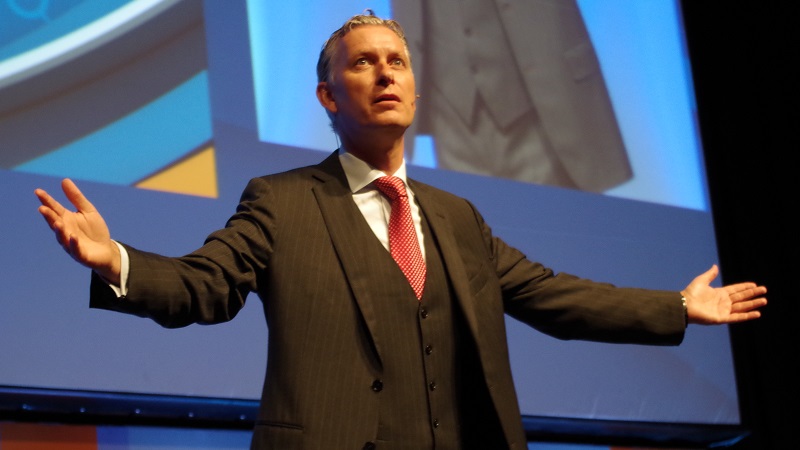Technology is changing, and at the same pace it is changing the world around us. While it might seem like an obvious thing to say, Gartner’s senior vice president, Peter Sondergaard, threw some very interesting comments to the delegates of the annual Gartner Symposium in Cape Town this morning.
3D printing is slowly enjoying some uptake in the market – including South Africa – by Sondergaard is of the opinion that sales of all 3D printers will hover around the 100 000 mark this year alone, while that figure will double come next year.
Moving on to the business side of things, it is no secret that as technology grown, businesses have to adapt to the environment, which often leads to changing perceptions.
“Make no mistake, the digital business is becoming a reality as more businesses are merging the physical and online together. This will lead to the establishment of new digital business models, and new digital business moments,” he said.
Tacking onto that, businesses can’t operate if they don’t have clients, and Sondergaard said that digital clients have now become the experts for any business – and every business, no matter their area of operation, is a digital businesses.
“Every company is now truly a digital company. In the world of technology, practically everything that can be instrumented, will be. Everything that is about $100 and up, will soon have some sort of sensor in it.”
He highlighted that informational technology and operational technology is fast merging and that the boundaries between them are fluent.
“Humans are changing too. As IT leaders we have all spent decades telling people that technology is the business to be in and that it will help to create new business opportunities, but often that has fallen on deaf ears. But now through the behaviour and consumer technology, it has changed people’s lives.”
According to Sondergaard, people spend more time in the digital world than they do sleeping, as they have become digital-first. People will often see you online long before they actually see you in person – and this is one existential threat to an IT leader.
“Africa will grow 5.4% in terms of spending on technology and in 2015 global IT sending will be $1 trillion. In South Africa 47% of IT service spend will be outside of IT, while the cost to provide cloud infrastructure services will plunge 40% by 2017. In 2018, businesses will only own half of the data centre systems in the world.”
As more and more people become connected to the internet and with things around them, Gartner predicts that by 2020 half of household will be connected in some form, while every business by then will have to manage around 1 million IP addresses.
But all of this will cost a small fortune to uphold, improve and upgrade – or will it? Sondergaard explains that every budget is an IT budget, and that every company needs to start thinking like a startup.
“No startup gets funding for what they have already. They get funding for what they are going to do and what they have planned. Data is the oil of the 20th century, and 10% of companies are already trading their data assets by monetising it.”
But job creation, and loss, will go hand-in-hand with technology. Gartner predicts that 30% of jobs in the future will be converted to robots and smart machines, and that thinking machines are coming into the work place a lot faster than before – and it displacing the traditional worker.
“We are seeing now that students are graded by software, and we have seen that these students actually work harder if they know that they are graded by software. But it will also lead to a surge in other top jobs, like IP attorneys and tech analysts.
“People have changed. The world has changed. Tech has changed,” Sondergaard concluded.
[Image – Charlie Fripp]

